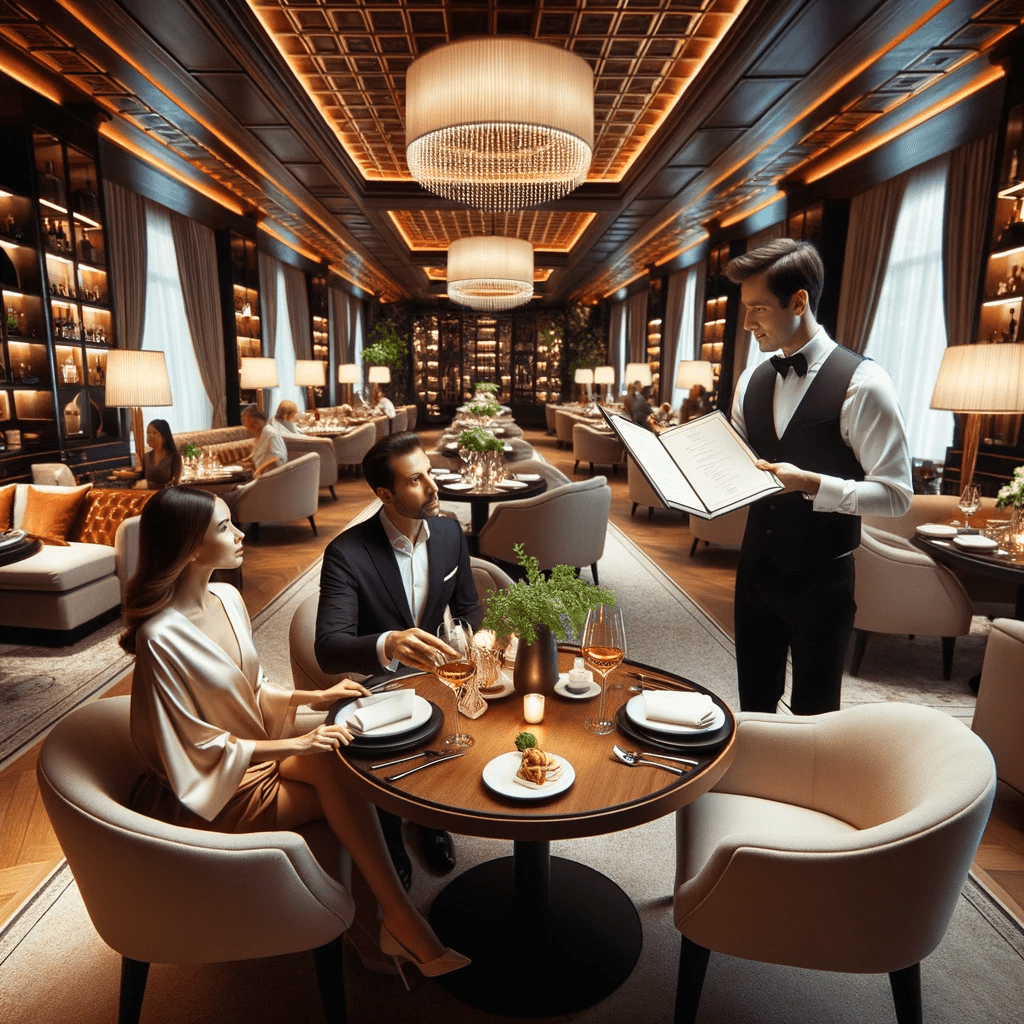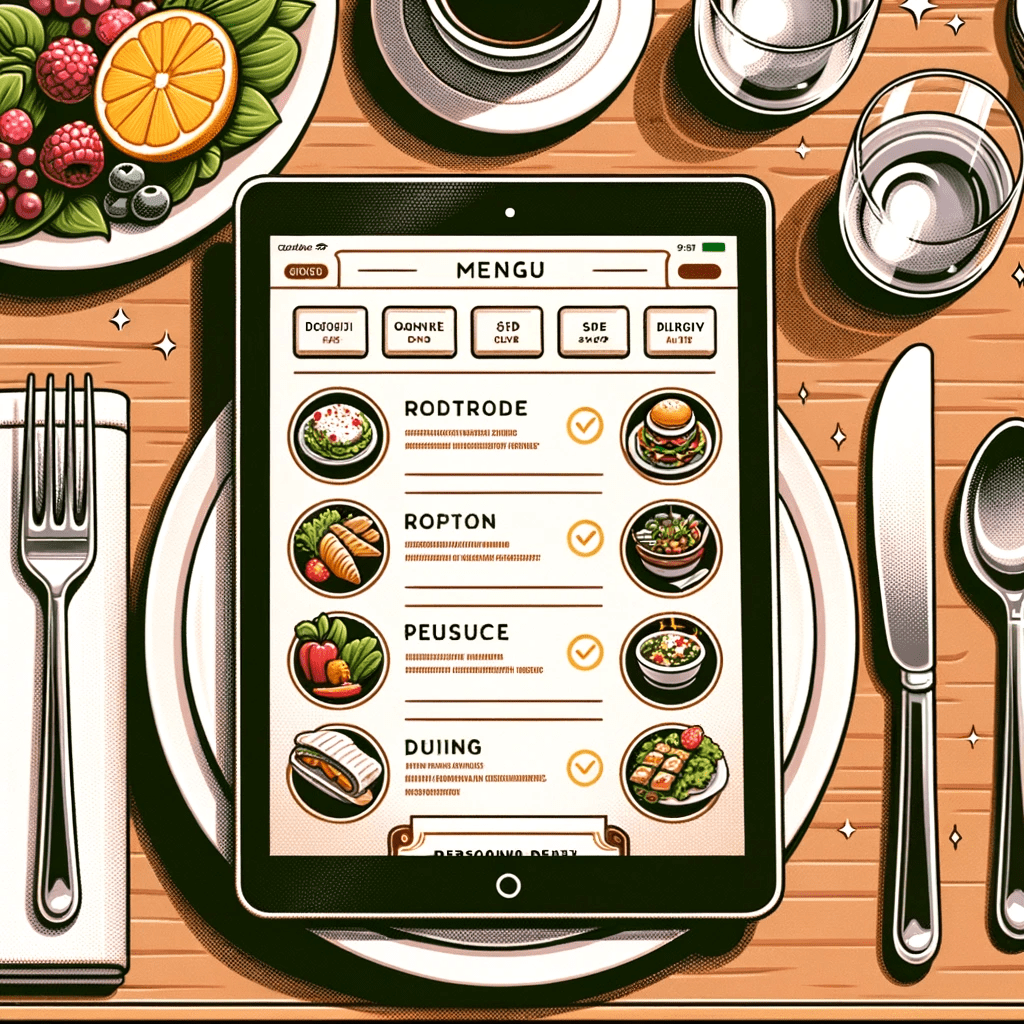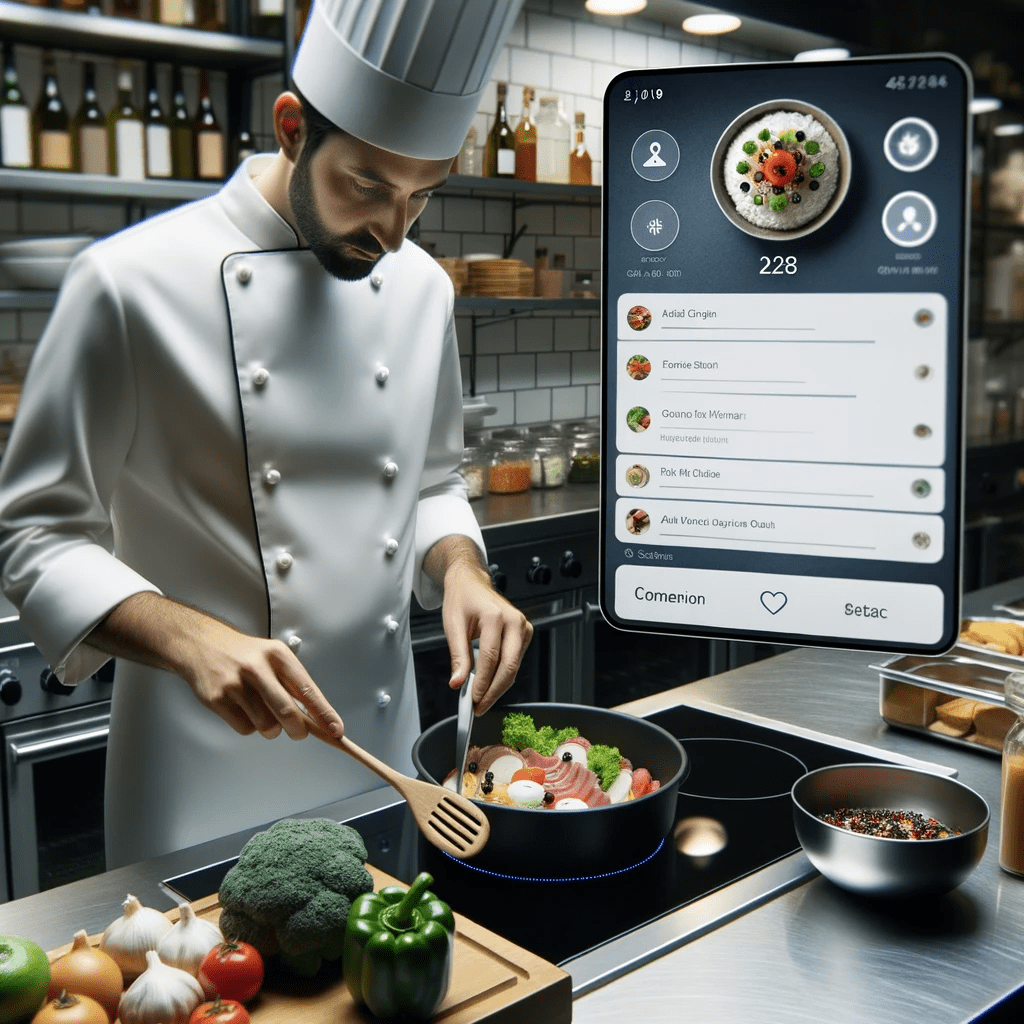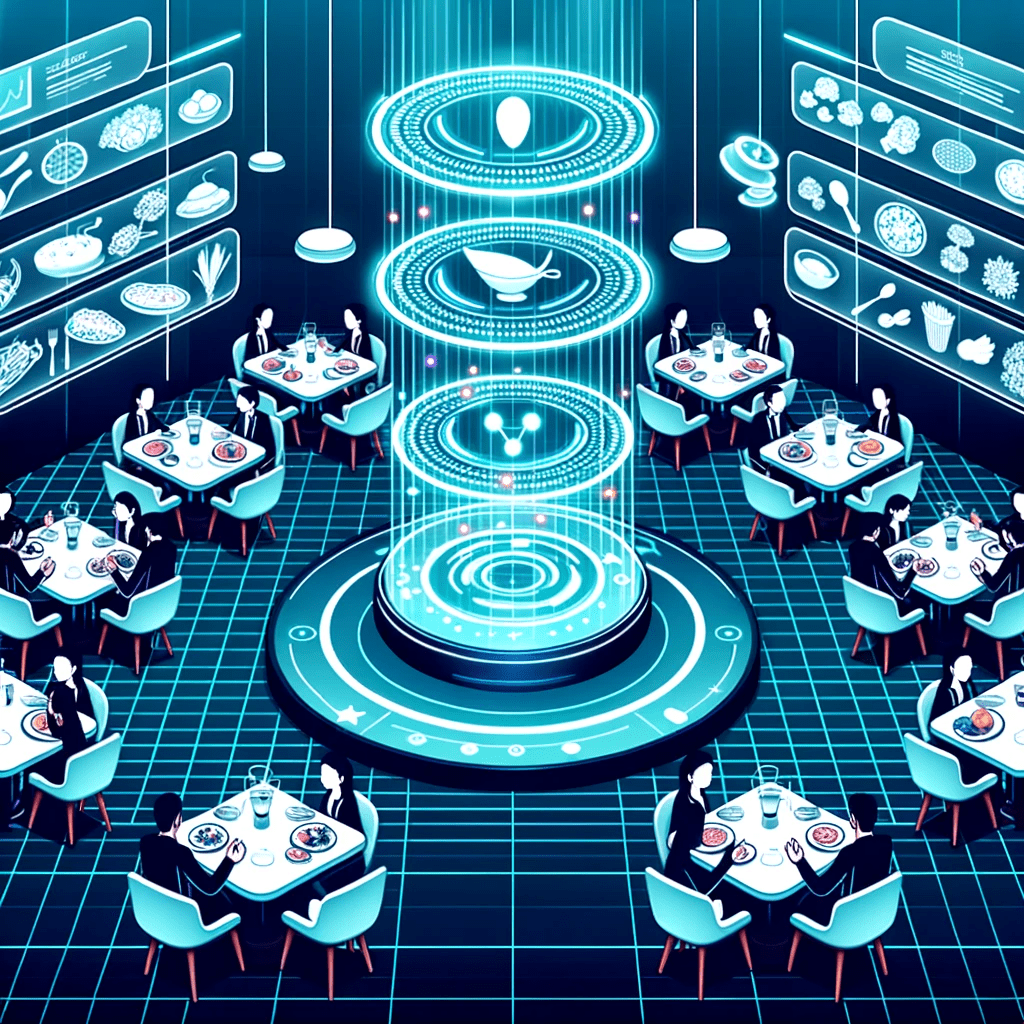The Importance of Personalization in the Restaurant Industry
The restaurant industry is experiencing a growing demand for tailored experiences, as customers no longer want a one-size-fits-all approach when dining out. They seek unique and customized offerings that cater to their individual preferences. This trend has made personalization increasingly important for restaurants to stay competitive and meet customer expectations.
For example, imagine a customer who is a vegetarian and prefers gluten-free options. They visit a restaurant that has embraced personalization. Upon arrival, the restaurant staff greets them by name and directs them to a table with a personalized menu that highlights vegetarian and gluten-free dishes. The customer feels valued and understood, which enhances their dining experience and increases the likelihood of repeat visits.
Personalization enhances the customer experience and helps restaurants stand out in a crowded market. With numerous dining options, restaurants must differentiate themselves and provide unique offerings to attract and retain customers. By offering personalized recommendations, tailored service, and customized promotions, restaurants can create a competitive advantage and establish a loyal customer base.
McDonald's recent acquisition of Dynamic Yield exemplifies the use of personalization and predictive analytics in the restaurant industry. By leveraging technology, McDonald's can provide personalized menu suggestions to customers based on various factors such as time of day, weather conditions, and popular items. This approach enhances the customer experience and drives revenue by increasing order value and encouraging more visits.
In summary, personalization is important in the restaurant industry to meet the growing demand for tailored experiences and to differentiate restaurants in a competitive market. By embracing personalization, restaurants can enhance the customer experience, drive revenue, and establish long-term relationships with their guests.

Leveraging Guest Data for Personalized Recommendations
To provide personalized recommendations, restaurants need to leverage guest data effectively. An integrated tech stack and direct digital ordering channels are crucial for collecting and utilizing guest data. These technologies streamline the ordering process and capture valuable customer information.
For example, let's consider a restaurant that has implemented a mobile app. When a customer orders through the app, the restaurant collects data such as order history, dietary preferences, and favorite menu items. With this information, the restaurant can provide personalized recommendations to the customer, suggesting new dishes based on their previous orders or offering relevant pairings.
Technology plays a significant role in collecting and organizing customer information. Point-of-sale, mobile apps, and guest management systems are commonly used to gather data and create guest profiles. These profiles store dining preferences, dietary restrictions, and special occasions. By accessing these guest profiles, restaurants can deliver personalized experiences that cater to individual preferences.
Furthermore, social media and online tools provide additional avenues for restaurants to stay connected with their customers even when they are not physically present in the restaurant. By engaging with customers on social media platforms, restaurants can gather insights into their preferences and behaviors. This information can then be used to personalize offerings and promotions, ensuring that the restaurant remains top of mind for the customer.
In conclusion, leveraging guest data through an integrated tech stack and direct digital ordering channels allows restaurants to provide personalized recommendations that enhance the dining experience. By utilizing technology and staying connected with customers through social media, restaurants can gather valuable insights and tailor their offerings to individual preferences.
Targeted Marketing Campaigns Based on Guest Data
Targeted marketing campaigns based on guest data are crucial for driving acquisition, retention, and engagement in the restaurant industry. By leveraging guest data, restaurants can create personalized marketing strategies that resonate with individual preferences and behaviors. This personalized approach increases the effectiveness of marketing efforts and enhances customer satisfaction and loyalty.
For instance, imagine a restaurant collecting customer data through its loyalty program. Armed with information about each customer's dining preferences and frequency of visits, the restaurant can send targeted offers and promotions tailored to each customer's tastes. By receiving personalized messages, customers feel valued and are more likely to engage with the restaurant's marketing campaigns, leading to increased visits and higher customer retention rates.
Technology is vital in collecting and analyzing customer data, enabling restaurants to identify trends and preferences that inform their marketing strategies. By utilizing technology platforms, restaurants can capture data from point-of-sale systems, mobile apps, guest management systems, and loyalty/rewards programs. This data can then be analyzed to create targeted campaigns that deliver the right message to the right audience at the right time.
To ensure a successful personalized marketing campaign, restaurants must prioritize the collection of trustworthy data. Trustworthy data ensures that the recommendations and offers provided to guests are accurate and relevant. By implementing robust data collection and management systems, restaurants can protect customer information and comply with privacy regulations. This data integrity commitment builds customer trust and enhances the personalized guest experience.
In summary, targeted marketing campaigns based on guest data drive acquisition, retention, and engagement in the restaurant industry. By leveraging technology and collecting trustworthy data, restaurants can create personalized marketing strategies that resonate with individual preferences and behaviors, fostering customer loyalty and driving business growth.

Tailoring Each Guest's Dining Experience
Tailoring each guest's dining experience is a key aspect of personalization in the restaurant industry. By accessing guest profiles and notes, restaurant staff can provide personalized service that makes guests feel like regulars. This personal touch creates a sense of familiarity and enhances the overall dining experience.
For example, consider a restaurant where the staff is trained to access guest profiles before a customer arrives. The profiles contain information about the customer's previous visits, dietary preferences, and special requests. With this knowledge, the staff can anticipate the customer's needs and provide a tailored experience. They may recommend a dish that the customer enjoyed during a previous visit or accommodate specific dietary restrictions without the customer mentioning them.
Making guests feel like regulars is a powerful way to create a personalized atmosphere. By recognizing and acknowledging returning customers, restaurants can foster a sense of belonging and make guests feel valued. This personalized approach enhances the dining experience and creates a strong emotional connection between the guest and the restaurant.
In addition to personalized service, attentive assistance is another way to tailor each guest's dining experience. For instance, if a guest requires dietary accommodations or has specific questions about the menu, the staff should be knowledgeable and ready to offer guidance. By providing helpful and attentive service, the restaurant demonstrates its commitment to meeting the unique needs of each guest.
Furthermore, offering something exclusive and remembering regular customers' preferences adds a layer of personalization to the dining experience. For example, a restaurant may offer only a secret menu item to its most loyal customers. By providing exclusive offerings, the restaurant makes guests feel special and recognized, further strengthening the bond between the guests and the establishment.
In conclusion, tailoring each guest's dining experience through personalized service, attentive assistance, and exclusive offerings is crucial for creating a memorable and personalized restaurant atmosphere. By accessing guest profiles and notes, restaurant staff can provide service that makes guests feel like regulars and enhances the overall dining experience.
Surprise and Delight Moments
Surprise and delight moments play a significant role in creating a lasting impression on guests. These moments are unexpected gestures or experiences that exceed the customer's expectations, leaving them with a positive and memorable impression. Incorporating surprise and delight moments into the dining experience can enhance guest satisfaction, generate positive reviews, and contribute to the overall growth of the restaurant.
For instance, imagine a restaurant that offers surprise and delight moments to its guests. As a customer celebrates their birthday, the staff gathers to sing a personalized birthday song and presents the customer with a complimentary dessert. This unexpected gesture surprises and delights the customer and creates a memorable experience they are likely to share with others.
Restaurants can create surprise and delight moments in various ways, such as special greetings, personalized notes, or complimentary gifts. For example, a restaurant may greet a regular customer by name when they enter or leave a personalized note on their table, expressing appreciation for their continued loyalty. These small but thoughtful gestures make guests feel valued and appreciated, fostering a positive emotional connection with the restaurant.
The impact of surprise and delight moments goes beyond the individual guest. When guests have a memorable experience, they are more likely to share their positive feedback with others through word-of-mouth recommendations or online reviews. This positive buzz can attract new customers and contribute to the growth and success of the restaurant.
In addition to benefiting guests, personalization through surprise and delight moments also benefits the brand itself. By creating memorable experiences, restaurants can differentiate themselves from their competitors and build a positive brand image. When customers associate a restaurant with surprise and delight moments, they are more likely to choose that establishment over others, leading to increased customer satisfaction, sales, and overall growth.
To summarize, surprise and delight moments are crucial for creating a lasting impression on guests and driving customer satisfaction. By incorporating unexpected gestures and personalized experiences into the dining journey, restaurants can leave a positive and memorable impression on their guests, increasing customer loyalty and overall brand growth.
Technology for Personalization in Restaurants
Technology is crucial in collecting guest data and creating personalized restaurant experiences. Point-of-sale, mobile apps, and guest management systems are commonly used to gather customer information and streamline operations. These technologies enhance the efficiency of restaurant operations and provide valuable data that can be used for personalization.
For example, let's consider a restaurant that utilizes a point-of-sale system. This system captures data such as order history, customer preferences, and payment methods. The restaurant can gain insights into customer preferences and create tailored experiences by analyzing this data. For instance, the restaurant may offer personalized discounts or promotions to customers based on their previous orders or dining habits.
Mobile apps also play a significant role in personalization efforts. By offering a mobile app, restaurants can collect valuable data such as customer preferences, order history, and location-based information. This data allows restaurants to provide personalized recommendations, send targeted promotions, and offer convenient features such as mobile ordering or reservation management.
Guest management systems are another essential technology for personalization in restaurants. These systems store guest profiles, including dining preferences, dietary restrictions, and special occasions. By accessing these profiles, restaurant staff can provide personalized service and memorable experiences for each guest.
Loyalty and rewards programs are valuable tools for collecting customer data and fostering personalized interactions. By offering incentives for customers to join these programs, such as discounts or exclusive offers, restaurants can encourage customers to provide their information willingly. This data can then be used to tailor promotions and rewards to individual preferences, further enhancing the personalized guest experience.
Staff education and training are crucial for utilizing technology effectively and maintaining accurate and up-to-date customer data. Restaurants must invest in training their staff to ensure they understand how to use technology platforms and properly update customer profiles. By keeping customer data accurate and relevant, restaurants can deliver personalized experiences consistently.
In conclusion, technology plays a vital role in personalization efforts in restaurants. Point-of-sale systems, mobile apps, and guest management systems enable the collection of valuable customer data, which can be used to create personalized experiences and tailored promotions. By leveraging technology effectively and investing in staff training, restaurants can enhance the guest experience and drive customer loyalty.

Building a Restaurant Database for Personalization
Building a comprehensive restaurant database is essential for recognizing important dates, informing customers about events, and building strong relationships with guests. This database serves as a repository of valuable customer information that can be used to personalize interactions and tailor marketing efforts.
For example, consider a restaurant that maintains a comprehensive database of its customers. This database includes information such as birthdays, anniversaries, and dining preferences. With this knowledge, the restaurant can send personalized messages to customers on special occasions, offering them exclusive promotions or complimentary items. By recognizing and celebrating these important dates, the restaurant demonstrates its commitment to providing a personalized experience.
Building relationships with guests through a comprehensive database is crucial for creating a loyal customer base. By capturing information about dining preferences, dietary restrictions, and previous orders, restaurants can anticipate the needs of their guests and tailor their offerings accordingly. This personalized approach makes guests feel valued and understood, fostering a sense of loyalty towards the restaurant.
Gathering business intelligence through digital services, social networking, point-of-sale systems, loyalty programs, and personal observations contributes to building a robust restaurant database. These sources provide valuable insights into customer behaviors, preferences, and trends. By analyzing this data, restaurants can make informed decisions about their offerings, promotions, and marketing strategies.
Understanding consumer behavior through a restaurant database has numerous benefits for restaurants. It allows them to identify trends, evaluate the success of their marketing campaigns, and make data-driven decisions. For instance, a restaurant may notice that a particular menu item receives many orders during a specific time of year. With this information, they can proactively promote that item during that season to capitalize on its popularity.
In conclusion, building a comprehensive restaurant database is instrumental in personalization efforts. By capturing and analyzing customer data, restaurants can recognize important dates, inform customers about events, and build strong relationships. Understanding consumer behavior through a restaurant database allows restaurants to provide tailored experiences and make informed decisions about their offerings and marketing strategies.
Overcoming Challenges in Personalization
While personalization offers numerous benefits, there are challenges that restaurants must overcome to implement it successfully. Adopting personalization technology requires a shift in customer habits, and restaurants must educate and train their staff to embrace personalized dining experiences. Overcoming resistance to change and promoting the value of personalized experiences are essential strategies for successful implementation.
For instance, many customers are accustomed to traditional dining experiences and may be hesitant to embrace personalization. Restaurants must educate their customers about the benefits of personalized experiences and guide how to navigate the new technologies and processes. By demonstrating the value of personalized dining, restaurants can overcome customer resistance and encourage adoption.
Staff training and customer education are crucial for the successful implementation of personalization. Restaurants must invest in training their staff to utilize personalization technologies effectively and accurately update customer profiles. Additionally, educating customers about the benefits of personalized experiences and guiding them through the new processes can help alleviate any concerns or hesitations.
Another challenge in personalization is striking the right balance between automation and human interaction. While technology plays a vital role in collecting and analyzing customer data, it's important to remember that personalization is ultimately about creating meaningful connections with guests. Restaurants must ensure that technology enhances the guest experience rather than replacing the human touch. By combining technology with genuine human interactions, restaurants can provide a truly personalized and memorable dining experience.
In summary, overcoming challenges in personalization requires a strategic approach and a commitment to ongoing improvement. By educating and training staff, promoting the value of personalized experiences, and striking the right balance between automation and human interaction, restaurants can successfully implement personalization and create exceptional dining experiences for their guests.
The Future of Personalized Dining Experiences
The future of personalized dining experiences holds exciting possibilities. Advanced technologies such as license plate scanning and facial recognition are already paving the way for fully personalized experiences. These technologies enable restaurants to identify customers at every step and personalize the experience based on their habits and preferences.
Imagine a future where customers can drive up to a restaurant's drive-thru, and the system recognizes their license plate and automatically suggests their favorite menu items. The restaurant can then provide personalized recommendations based on the customer's previous orders, ensuring a seamless and customized experience.
Advanced technologies like license plate scanning and facial recognition are not entirely new, but what's changing is the ability to tie everything back to a single guest profile. This comprehensive guest profile includes data on dining preferences, dietary restrictions, and previous interactions with the restaurant. This data allows restaurants to create highly tailored and personalized guest experiences.
However, the widespread adoption of personalization technology in the restaurant industry requires overcoming certain barriers. One of the main challenges is getting restaurants to adopt the technology and integrate it seamlessly into their operations. This requires investment in technology infrastructure, staff training, and change management.
Additionally, customer habits and preferences need to align with personalized dining experiences. Getting customers to embrace these new technologies and processes may require education and a shift in mindset. Restaurants can help facilitate this change by offering technologies that don't require customers to do anything differently, such as handheld ordering devices or drive-thru features that recognize diners.
The technology that enables fully personalized dining experiences provides restaurants with a comprehensive understanding of consumer behavior, which is one of its biggest benefits. By analyzing customer data, restaurants can identify trends, preferences, and patterns, allowing them to make informed decisions about their offerings and marketing strategies. This wealth of information empowers restaurants to create highly personalized experiences that resonate with their target audience.
In conclusion, the future of personalized dining experiences holds great potential. Advanced technologies like license plate scanning and facial recognition pave the way for fully customized interactions. By embracing these technologies and overcoming barriers, restaurants can provide highly personalized experiences, enhance customer satisfaction, and stay at the forefront of the industry.

Conclusion
In conclusion, personalization is of utmost importance in the restaurant industry. It allows restaurants to meet the growing demand for tailored experiences, differentiate themselves in a competitive market, and establish long-term relationships with their guests. By leveraging guest data and technology, restaurants can provide personalized recommendations, tailor each guest's dining experience, create surprise and delight moments, and build strong customer relationships. Building a comprehensive restaurant database, overcoming challenges, and embracing advanced technologies are essential for successful personalization efforts. The future of personalized dining experiences holds great potential, with technologies enabling fully customized interactions and providing restaurants with a comprehensive understanding of consumer behavior. By embracing personalization, restaurants can create exceptional dining experiences, enhance customer satisfaction, and drive business growth.